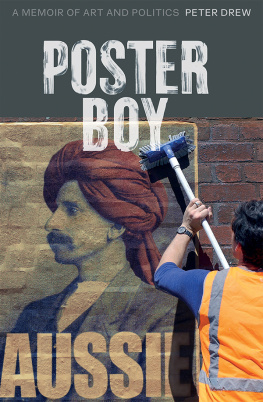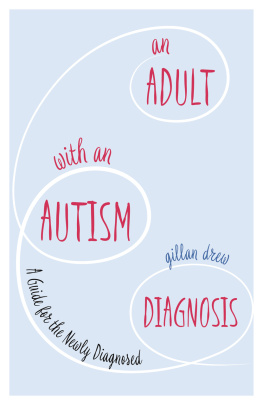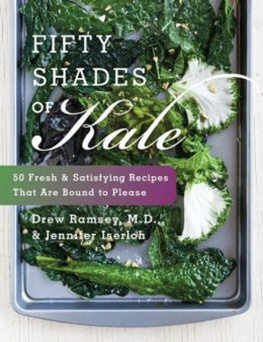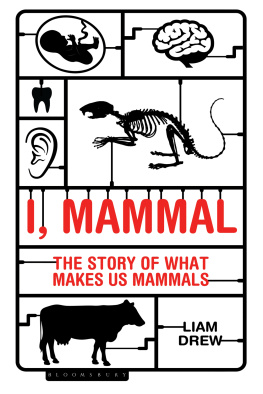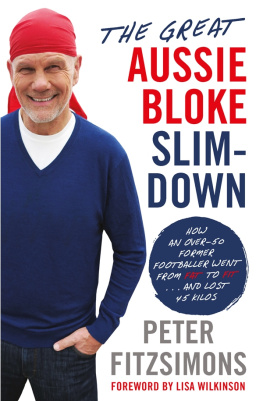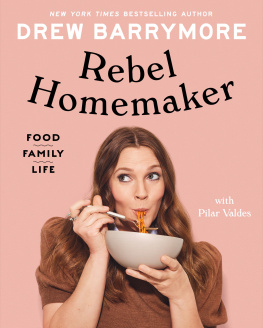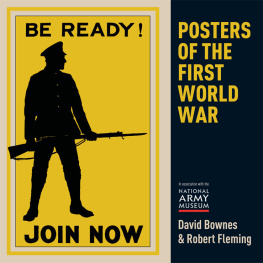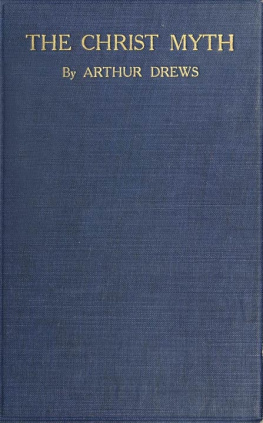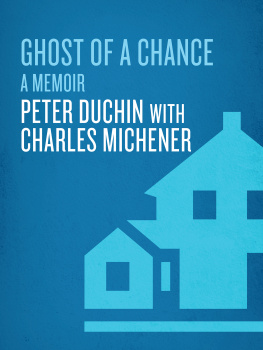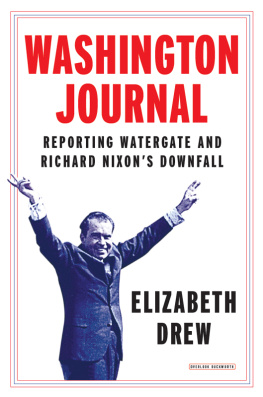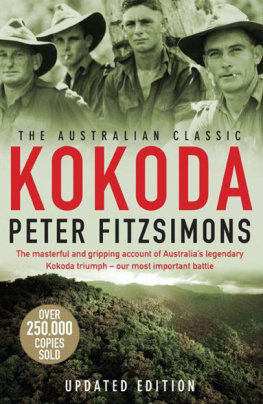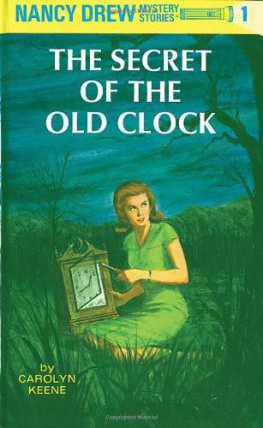Acknowledgements
Thanks to Anna Goldsworthy for pointing me in the right direction at a moment when this book might have come to naught. Thanks also to Chris Feik and Jo Rosenberg for always making me feel that I was in safe hands. Finally, thanks to my wife, Julie, for gently reminding me, about twice a year, that I needed to write a book. If I ever write another one itll be about Julie and what being with her has taught me about the relationship between love and creativity.
Ambition and Apologies
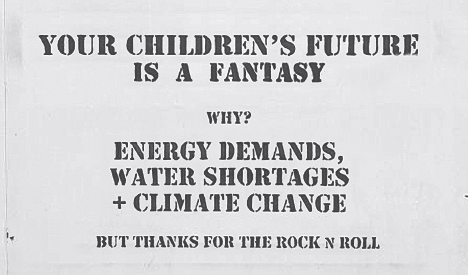
I made this stencil in October 2009. Im not particularly proud of it. In fact, I find it pretty embarrassing, but I think its worth showing you because it reveals something about me that still hasnt changed. Its also the first piece of street art I ever made.
I grew up in a household where no one ever apologised and no one was ever forgiven. I know that sounds a little dramatic but its really not much of an exaggeration. Its taken me a long time to learn how to apologise and Im still not very good at it. If you dont believe me, just ask my wife. Whenever we have an argument I turn into a Rubiks cube made of stone, only less emotional.
The atmosphere at home cycled between dormant, snarky and explosive. The root cause was definitely my parents relationship. Ive never witnessed an act of physical affection between them. Sometimes they bicker in an affectionate way but Ive never seen them exchange a simple kiss or a hug. I didnt realise that my parents relationship was unusual until I was twenty-one. I distinctly remember being at a friends house and seeing my friends parents casually give each other a kiss. I thought, What the fuck was that? I asked my friend about it and he looked at me like I was weird. Then it occurred to me that maybe I was weird. The exact reason for my parents estrangement had always been a mystery, although I cant say I spent much time wondering about it. Thats just the way it was.
Despite our familys lack of affection there was never any lack of ambition. In fact, there was so much emphasis placed upon achievement that I wondered whether one compensated for the other. When it came to encouraging good grades, my dad had a simple system: he gave me $20 every time I got an A. So I got straight As. I was making $120 every term and it was easy money. I wasnt particularly smart, I just didnt socialise. Thats how I graduated from high school with an excellent Tertiary Entrance Rank and the social skills of a shut-in. I was perfectly qualified to follow my half-baked dream of becoming an accountant. The University of Adelaide offered me a position to study Commerce at its prestigious business school and my parents couldnt have been happier. Then, in the summer between school and uni, I discovered friends, drugs and girls. I dropped out of uni within a month.
Throughout that period I was quite happy to be a fuck-up. Subconsciously Id realised that my parents love was conditional upon my achievements, so I felt a perverse sense of righteousness in squandering my own potential. However, my cynicism wasnt reserved for my parents. Id decided that the whole world was faulty and I was going to escape it by constantly getting high. My new lifestyle didnt sit well with my family, especially since I was still living at home. At one point the tension spilled over into violence. I was arguing with Dad when a fight broke out between me and my older brother, Julian. My younger brother, Simon, jumped in to help me. Then Dad jumped on Simon. For a moment there were four grown men brawling in the hallway. Its funny to remember but it was bloody awful at the time. Afterwards my dad and I were both in tears and he told me that he loved me. Thats when I knew I had to get my shit together.
Reluctantly, I enrolled in a course of Psychology and Philosophy. I wasnt interested in a career in either discipline but I did have a strong desire to understand the world. Really, I wanted to understand myself. During the course I gravitated towards art. I wasnt particularly talented, I just felt like I had something to say. And thats how I became an artist. I moved into a share house, fell in love and got married.
I was a painter before I got into street art. I painted large, colourful canvases that bear little resemblance to the art in this book. In 2008 I was offered my first solo exhibition at a small commercial gallery in Adelaides eastern suburbs. The gallery owner believed my work was saleable, but that was before the global financial crisis. When my exhibition finally opened a year later, the art market had collapsed. I only sold a few paintings. The owner of the gallery said I was lucky to have sold anything.
I took my unsold paintings back to my studio. Before the exhibition I was actually scared to sell them, but now I was afraid Id never get rid of them. I stacked them in the corner of my studio and covered them with a sheet, but I couldnt ignore them. Every time I sat down to paint new work, there they were, mocking my ambition. I began to wonder whether I should quit.
Im not sure ambition is the right word for the way I feel about art. When youre a kid you dont have ambition; you have a dream. We dream of growing up and doing something good, because were encouraged to believe that the world is good. Were encouraged to believe that theres a place waiting for us in the world. For me, ever since crossing the threshold into adulthood Ive had the nagging feeling that the world wasnt worth taking seriously. That I didnt really want to participate. I was happy to observe life from the outside, but becoming a part of the world wasnt for me. I didnt know where that feeling came from but I believed that art was my best hope for fighting a way out of it.
So I really couldnt quit. I needed to keep making art but I had to find some form of expression that didnt rely on the disposable income of art collectors. It just so happened that my housemate was a street artist. At night he would go out to paint walls in the city. I kept asking him questions about how he did it, so one night he offered to take me out and show me the ropes. It was exactly what I needed. When youre sneaking around the city at night you feel like a kid again. The seriousness of the world is unmasked as a series of faades, dead objects just waiting to be painted. I was immediately hooked. Out on the street I could say anything I wanted. So what did I want to say?
The idea for my first stencil came to me one night while painting in my studio. I was listening to the pithy pessimism of Radio Nationals Late Night Live. Phillip Adams guest was predicting a future of terminal decline but instead of being worried, I felt emboldened. Alone in my studio, I listened intently, nurturing my wounded sense of entitlement as I designed my stencil on the computer my parents had bought for me. I used an old projector Id stolen from the University of Adelaide to transfer the design to a large piece of cardboard. With a $2 Stanley knife, I cut out each letter. From beginning to end it took less than an hour. Finally, I picked up my $3 can of black spray-paint and headed out into the night. I was ready to deploy my 26-year-old wisdom. I was ready to become a street artist. I kept painting and holding exhibitions for another two years, but it was only a matter of time before street art took over my life.
Twenty-six is pretty late to begin a career in vandalism. While many graffiti artists are hanging up their spurs at that age, I was just getting started. Since then Ive become both better and worse. My posters have become more optimistic but theres still something aggressive and arrogant in the way I stick them up on other peoples property. I can offer various intellectual arguments for my behaviour but the real reason is temperamental. Part of me would rather be in the position of owing an apology than asking for approval. After almost ten years of making street art, that still hasnt changed.
Next page
